
People living with alpha-gal syndrome know to avoid animal products like beef, pork, lamb, and bison. But did you know that a specific plant also contains the alpha-gal epitope that can cause a reaction in some people with alpha-gal syndrome?
The information provided on this site is based on my personal experience living with alpha-gal syndrome. I consistently cite and link to expert sources, but nothing published on this site should be perceived as medical advice.
Alpha-gal sensitivities vary by person. You should understand your dietary restrictions, making any adjustments needed, and directing any questions to your physician.
Before Saint Patrick chased all the snakes in Ireland into the Atlantic Ocean, Irish cooks added an extract from red seawood to thicken milk-based drinks and plump up pudding. But the plant-based thickening and gelling agent has been controversial for several decades.
To help offset the costs of running SageAlphaGal.com, you’ll find affiliate links lightly sprinkled throughout the site. If you choose to make a purchase via one of these links, there’s no additional cost to you, but I’ll earn a teeny tiny commission. You can read all of the legal blah blah blah (as my little niece says) on the full disclosure page.
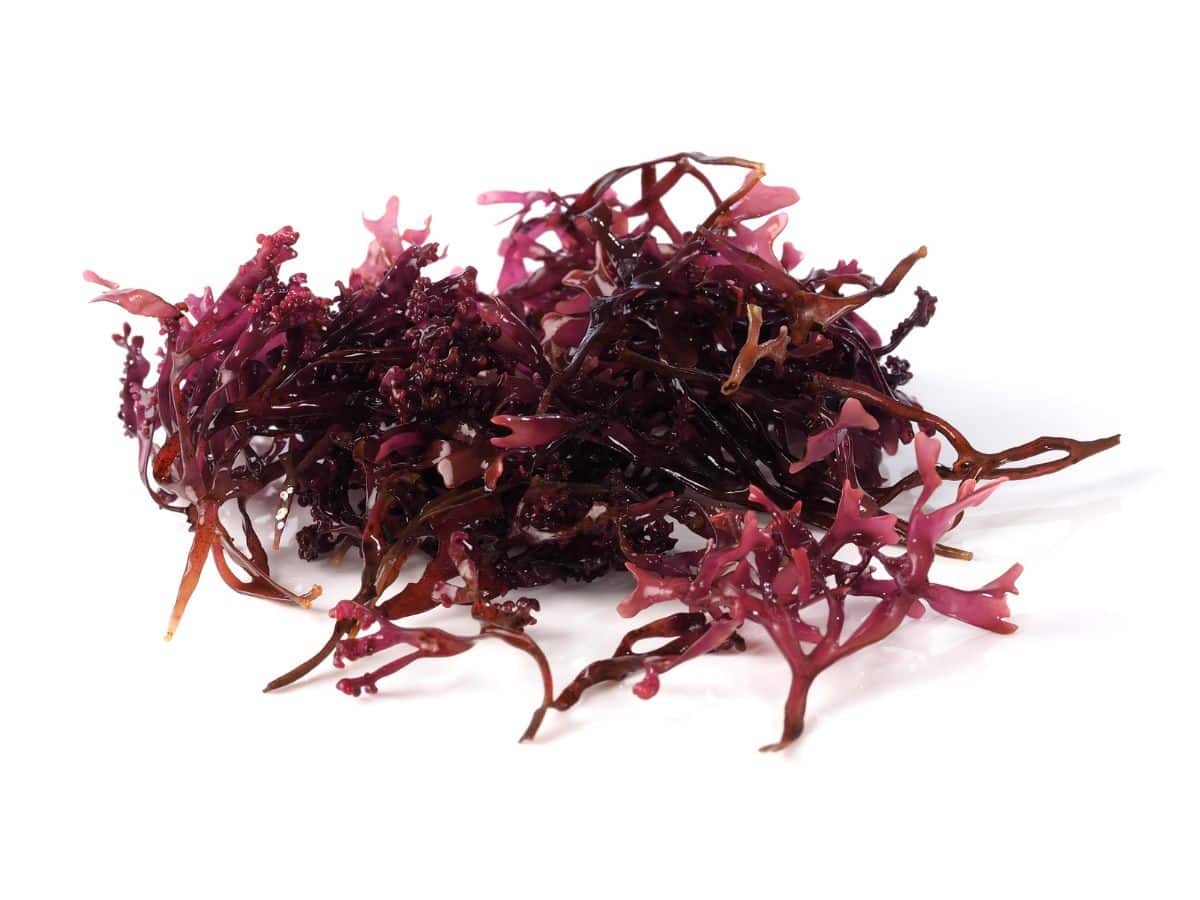
What is Carrageenan?
Carrageenan is an extract from an edible red seaweed commonly known as Irish moss. It grows wild along the rocky Atlantic coast of Ireland and the British Isles. Here in the United States, carrageenan is a common food additive used to emulsify and thicken foods since it was approved by the Food and Drug Administration (FDA) in 1961. And because it is plant-based, carrageenan is often used in vegan versions of cheese, yogurt, and chocolate milk.
Fun Fact: Unlike unprocessed edible seaweed and algae – like kelp and nori – carrageenan has no nutritional value.
Sage Advice: Like carrageenan, nori is made from red algae and may contain the alpha-gal epitope, so watch for any reaction when you eat sushi wrapped in seaweed.
Is Carrageenan Bad for You?
Although there is not a lot of human clinical data available, scientists have studied the consequences of carrageenan consumption in humans for several decades . The FDA has proclaimed carrageenan to be safe for human consumption and allows it to be included in organic foods.
However, negative gastrointestinal effects have been discovered in animal studies conducted with rats, guinea pigs, and monkeys. Some scientists have stated that carrageenan is associated with digestive tract issues like inflammation, ulcerations, and colon cancer. Other equally respected scientists dispute these findings and present data that shows carrageenan to be a safe food additive.
Want Alpha-Gal Safe Recipes and More?
Sign up for the weekly newsletter!
Thank You for Subscribing!

Should You Avoid Carrageenan If You Have Alpha-Gal Syndrome?
Even if you’re not concerned about possible adverse effects of consuming carrageenan, you may want to avoid carrageenan if you have alpha-gal syndrome. Although carrageenan is a plant-based ingredient, it contains the alpha-gal epitope, which can cause a reaction in some people with alpha-gal syndrome. And, because people with an allergy to mammalian products are more likely to consume alternative dairy products that commonly contain carrageenan, they are at particularly high risk.
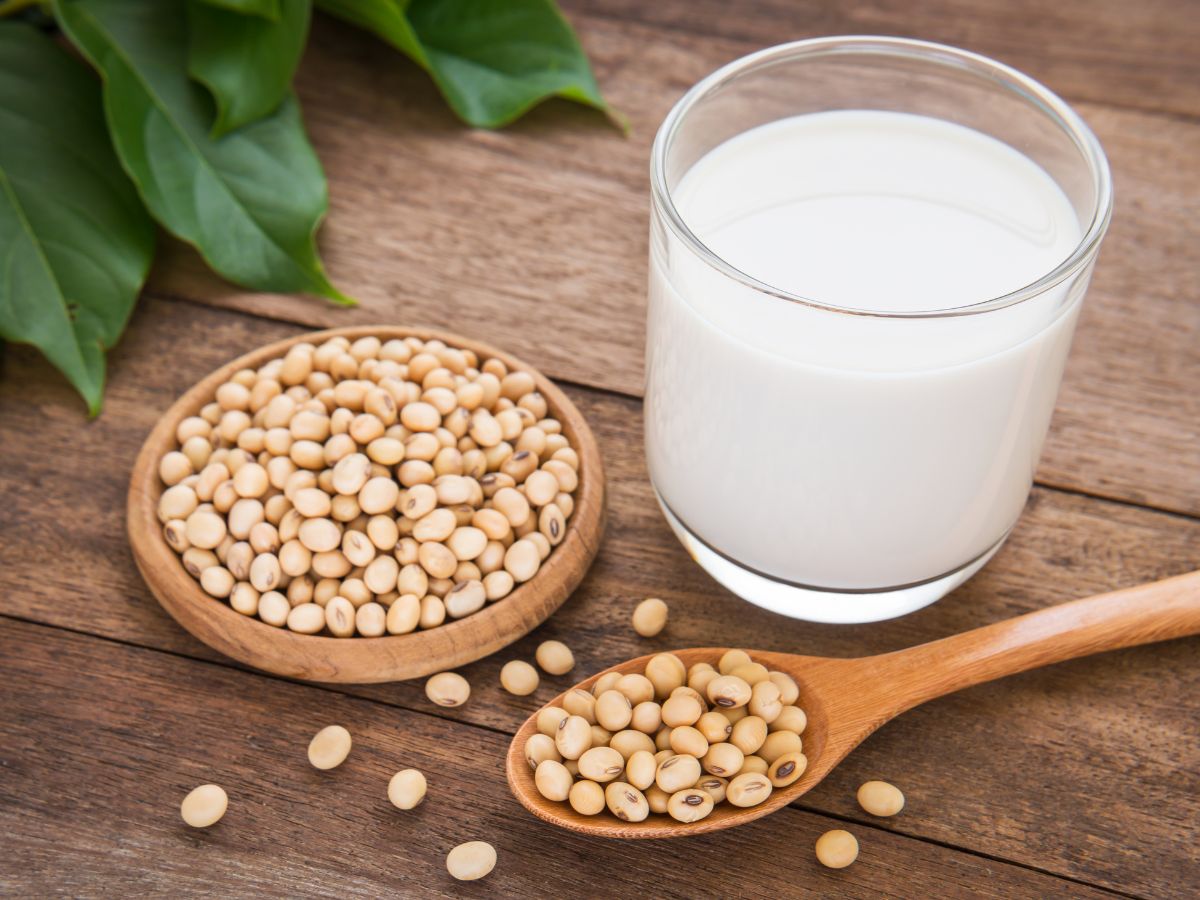
What Foods Contain Carrageenan?
Because carrageenan is used to thicken, tenderize, and preserve foods, you’re likely to find it on the ingredient labels of:
- Processed dairy products, including chocolate milk, coffee creamer, cottage cheese, ice cream, ricotta cheese, pudding, whipped cream, and yogurt
- Non-dairy products such as vegan cheese and vegan yogurt
- Nut milks and other non-dairy milks including almond milk, coconut milk, hemp milk, rice milk, and soy milk
- Otherwise alpha-gal-safe meat products like turkey bacon, chicken sausage, and poultry cold cuts, where it’s used as a binder, and rotisserie chicken, where it’s injected into the bird to tenderize the meat and help it retain its juices
- Jelly, where it’s used as a vegan alternative to gelatin
- Other prepared foods, including canned soup, microwavable dishes, and frozen pizza
Related Article: Best Milk Alternative for Alpha-Gal Syndrome

Carrageenan can also be found in non-food products like cosmetics, toothpaste, chewable vitamins, and pharmaceuticals. I was surprised to learn that can be found in aloe vera gel!
On a positive note, several companies are replacing carrageenan with alternative thickening agents. Silk, a manufacturer of plant-based products like almond milk and dairy-free yogurt, has removed carrageenan from most of its products. But not the soy creamer, so try this creamer or this creamer instead.
And while some alpha gals cannot consume traditional dairy products, if you’re one of the lucky ones who can tolerate it, Stonyfield Organic has also removed carrageenan from most of its products.
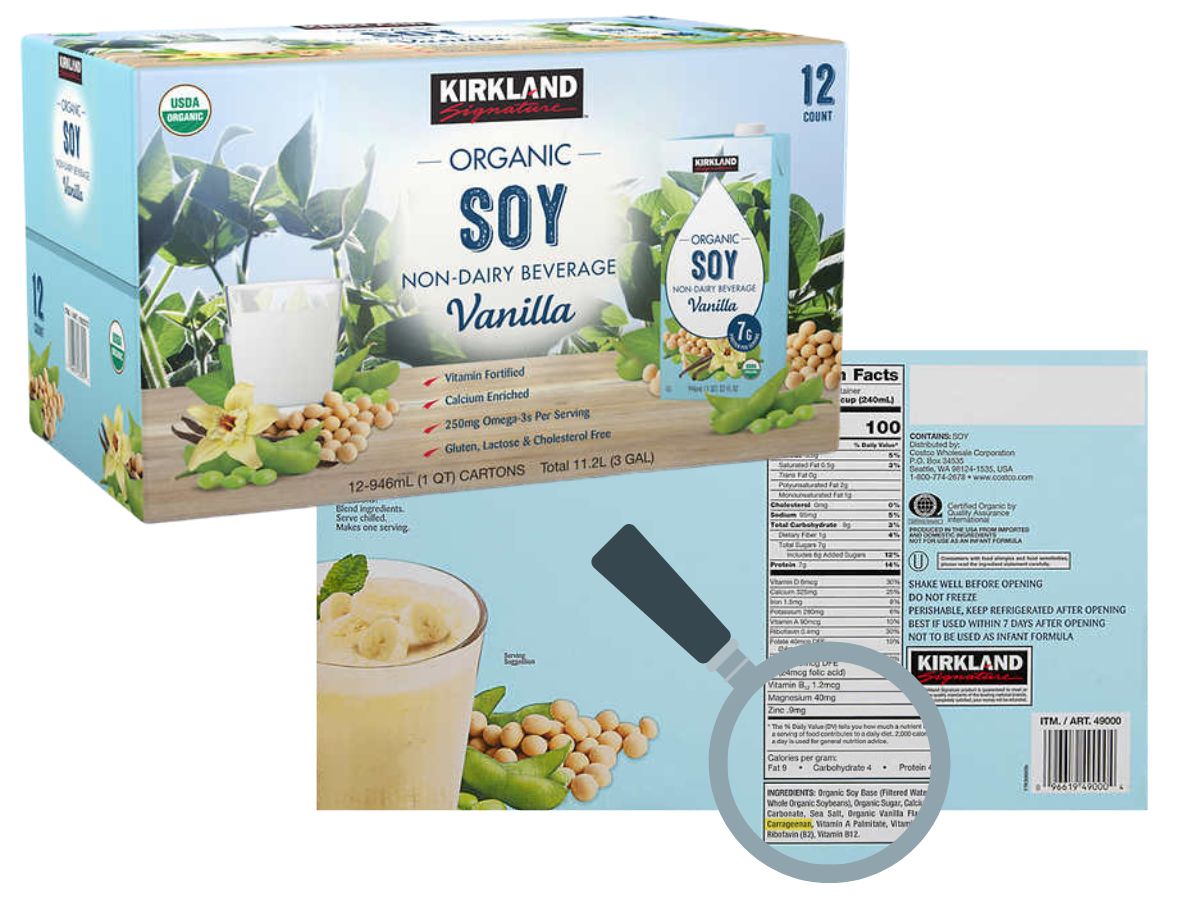
How to Identify Carrageenan on an Ingredient List
The FDA has proclaimed carrageenan to be safe for human consumption, including in foods labeled organic. But although food manufacturers are required to identify carrageenan in their products, it’s not always spelled out in the ingredients list.
As you navigate life with alpha-gal syndrome, don’t overlook carrageenan listed on ingredient panels by one of its other names. A few other names for carrageenan include:
- Carrageenan gum
- Carrageenin
- Irish moss
- Irish moss extract
- Red algae
- Red seaweed extract (Rhodophyceae)
- Sea moss
- Seaweed extract
- Vegetable gelatin
But remember that truly natural unprocessed seaweed and algae products are much different than processed carrageenan and generally safe for alpha gals to eat.
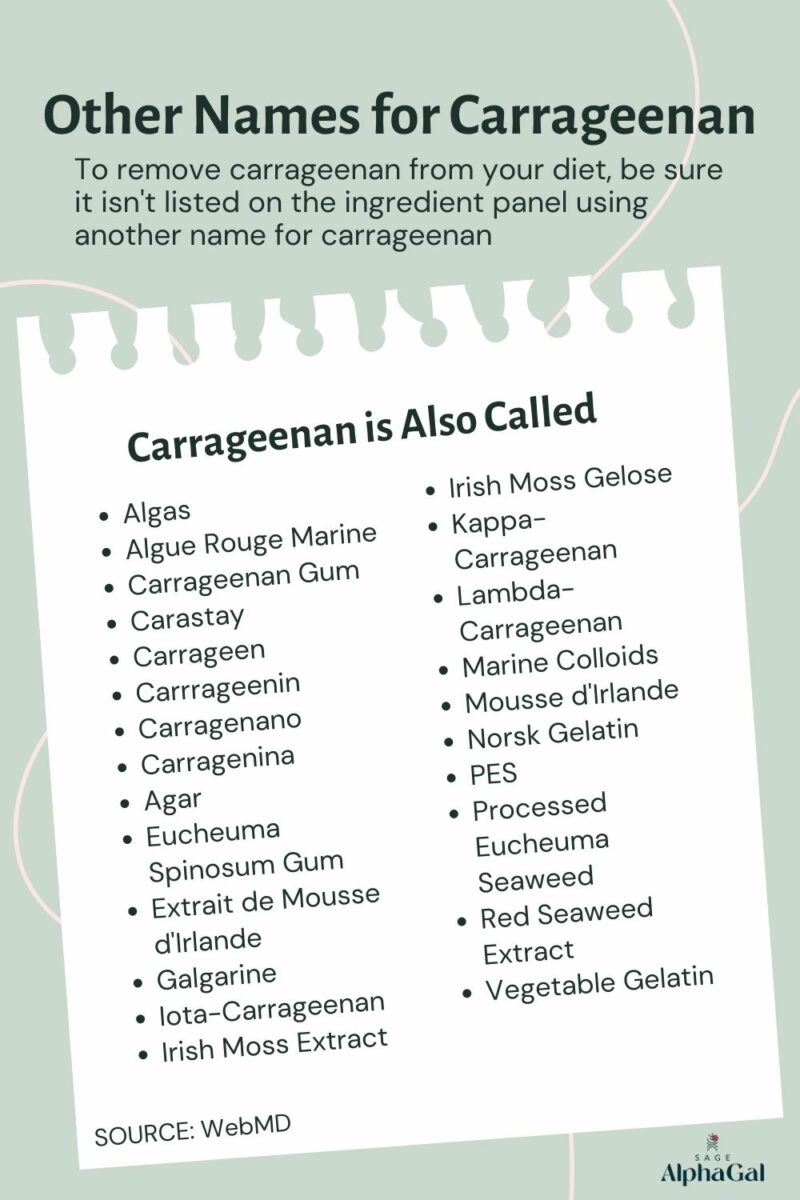
Alternatives to Carrageenan That are Safe for Alpha Gals
Thickening agents are often required to make the spoonful of jelly that you spread across your toast in the morning and the scoop of vegan ice cream you enjoy at the end of the day. While carrageenan can cause a reaction in people with alpha-gal syndrome, you can look for these alternatives when reading food labels:
- Alginate, derived from brown algae
- Gellan gum, which grows naturally on water lilies
- Guar gum, made from guar beans, a type of legume
- Gum arabic, derived from certain trees
- Locust bean gum, also known as carob gum, which is extracted from carob seed
- Sunflower lecithin, a natural fat emulsifier derived from sunflowers
Another plant-based thickener, agar (also known as agar-agar), is made from red algae and may contain the alpha-gal epitope. And, please note that some alpha gals have expressed a sensitivity to gums like the ones listed above.
Sage Advice: This buyer’s guide, published by The Cornucopia Institute, is a tremendously helpful resource for alpha gals wanting to avoid carrageenan.
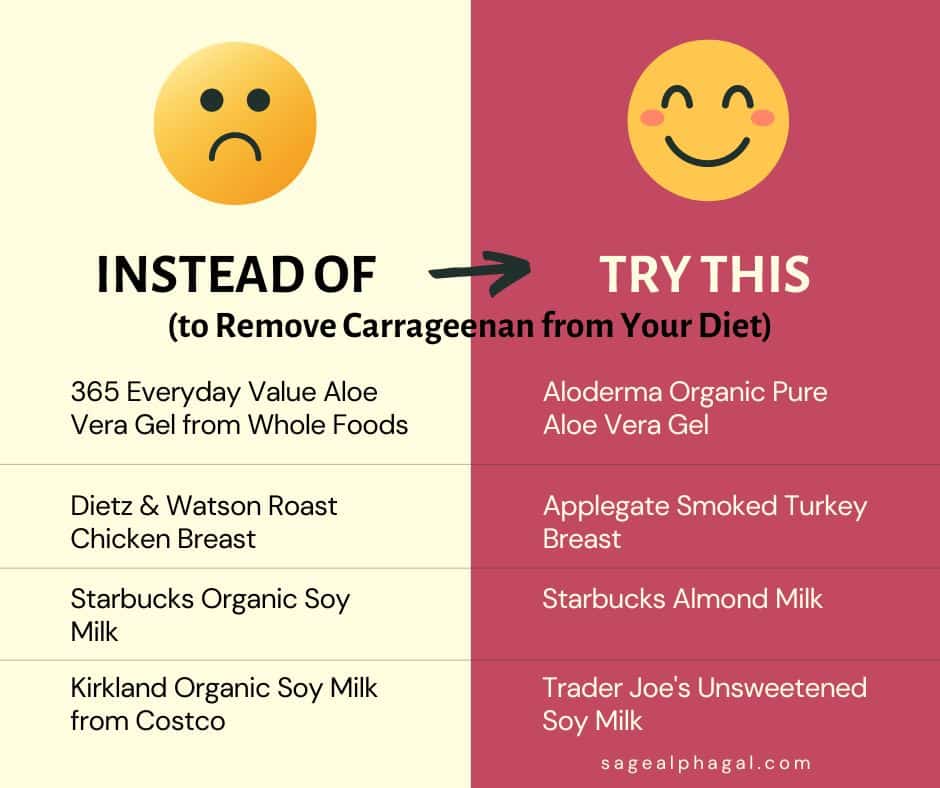
Do You Avoid Carrageenan?
In what foods have you found carrageenan hiding? Have you identified an alternative food product? Are there any other common foods containing carrageenan that I missed above? Share your experiences in the comments section below.
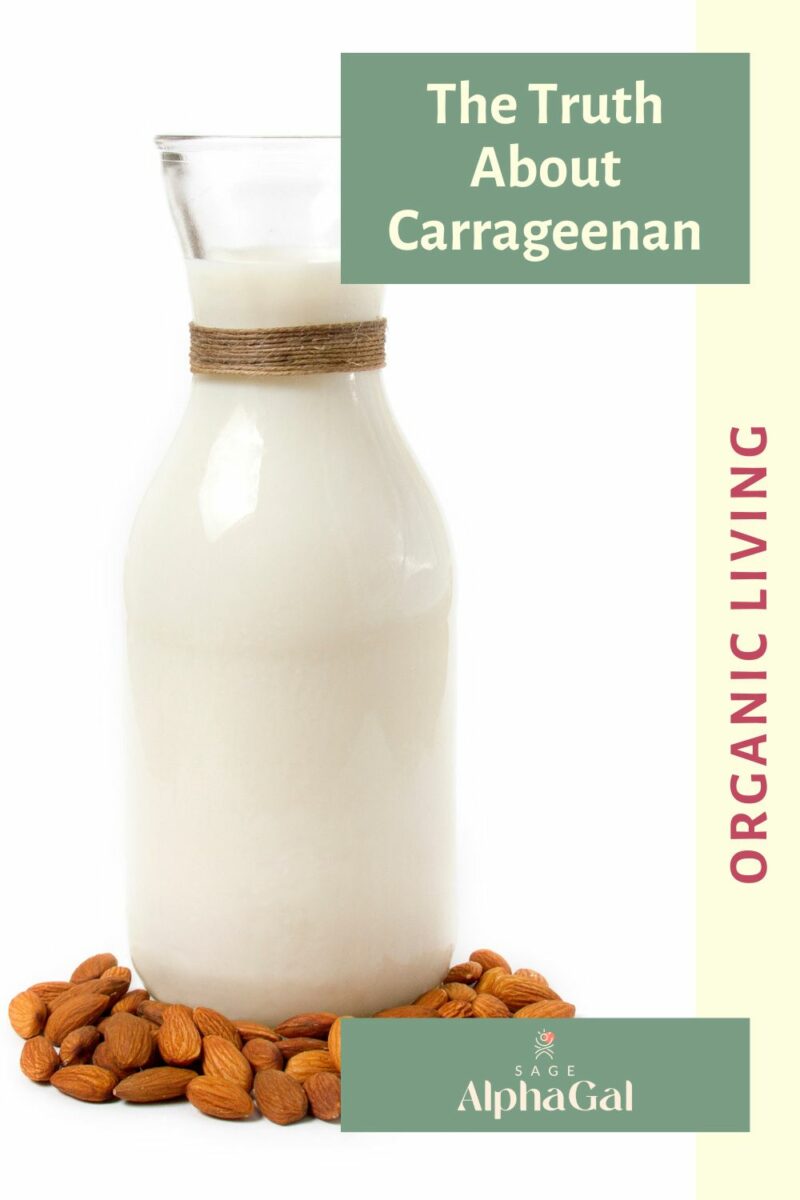
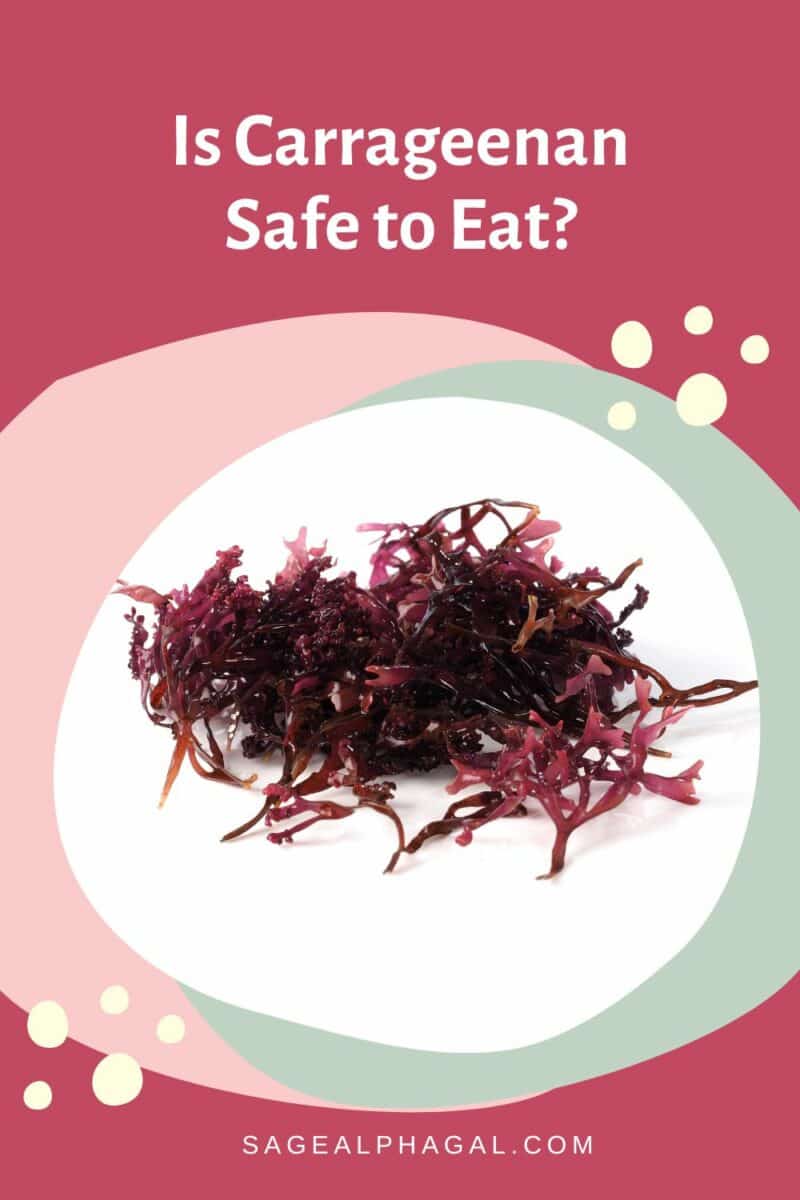

Thank you for sharing!
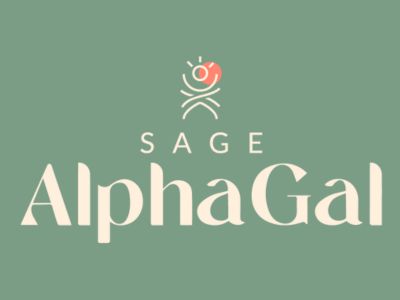
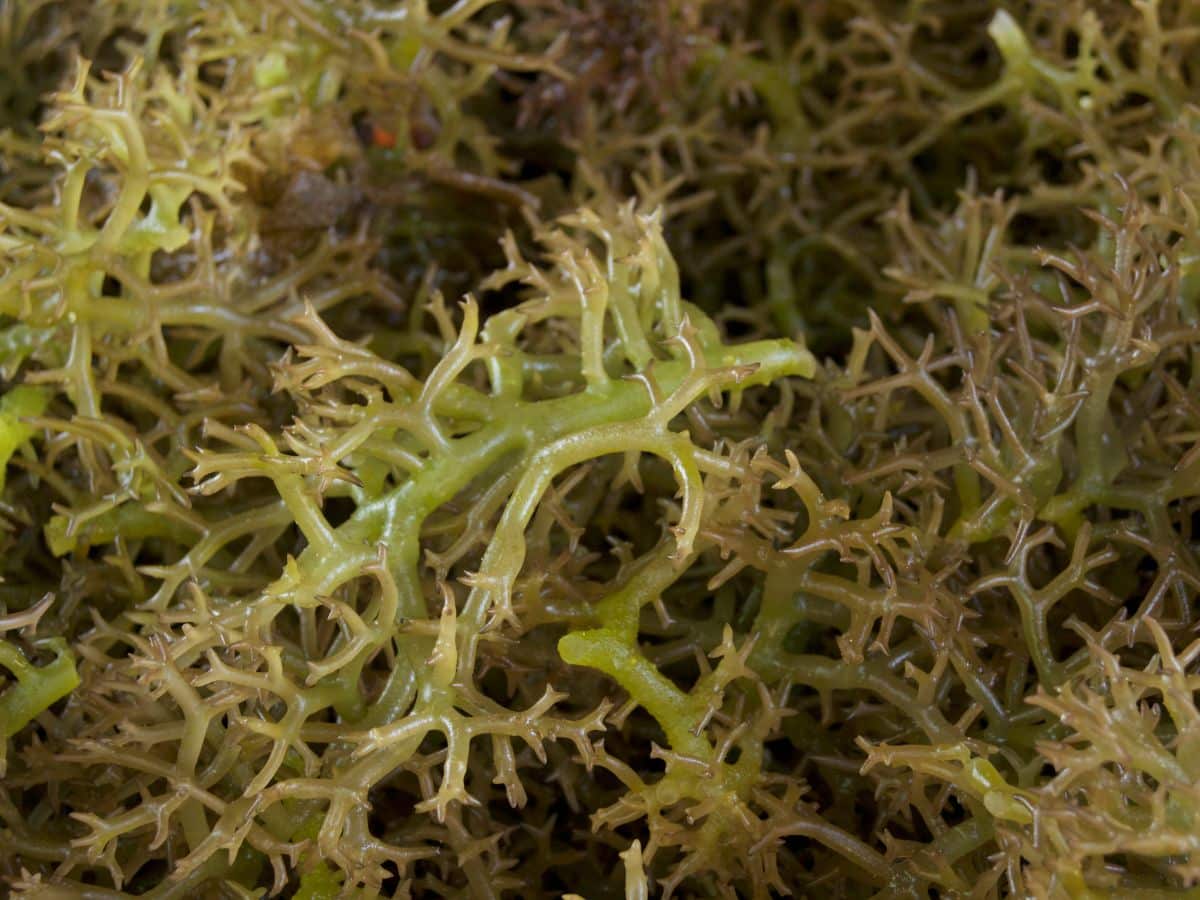
Carrageenan is also used in production of beer. They sometimes add it to bind with the proteins and then strain it to clarify the beer.
Wow, I had no idea that carrageenan is used in beer production! And I bet that means it won’t show up in an app like Barnivore since carrageenan is a plant-based ingredient.
This is great information! Thank you! I was just diagnosed but have battled with this since I was a little girl and no one could tell me what was wrong. The delayed reactions made it very hard to realized this is what it was. I haven’t eaten wheat in 13 years but that may not even be my issue now. Doing an elimination diet now. Need all the help I can get!! Thanks again for sharing!!
I’m so sorry to hear that you’ve suffered so long without any answers. I hope the elimination diet will help you get a handle on your specific alpha-gal triggers and sensitivity level so you can get back to enjoying life (and food) to the fullest! <3
I don’t understand – you say to avoid carrageenan and to choose vegan cheese options. Carrageenan is IN vegan cheeses, as well as lots of non-dairy alternatives and desserts. Cottage cheese too, I believe.
You should avoid carrageenan if you’re sensitive to it (not all alpha gals are) OR if you want to avoid it as a general rule based on studies that have shown it to be harmful in some lab tests. If you do wish to avoid carrageenan, read labels carefully. It is in some vegan products, but not all. For example, Kirkland brand soy milk does contain carrageenan, but Trader Joe’s soy milk does not. Hope that helps clarify and answer your questions! 🙂